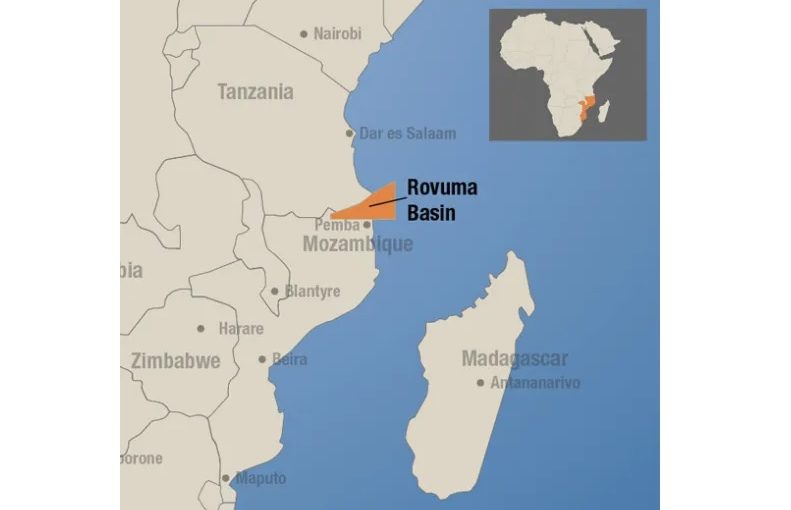Mozambique: ExxonMobil to fund electricity project in Palma
Just In: Tanzania, Mozambique set for natural gas share agreement – The Citizen Tanzania

Map: Mozambique Resources
- The proposed unitisation agreement is set to reshape the energy landscape in East Africa and have far-reaching implications for both countries.
Tanzania’s Petroleum Upstream Regulatory Authority (Pura) and Mozambique’s National Institute of Petroleum (INP) are on the brink of signing an agreement on the equal share of the natural gas reservoir in the border area, The Citizen Tanzania reports.
The proposed unitisation agreement, revealed yesterday during a meeting between media editors and the Pura management, is set to reshape the energy landscape in East Africa and have far-reaching implications for both countries.
Unitisation is the process whereby an oil or gas reservoir straddling multiple license areas is jointly developed by the holders of each license.
Pura CEO Charles Sangweni said the essence of the agreement stemmed from the unique geographical location of these gas reserves.
Unlike traditional border disputes where the demarcation lies within the land, in this case, the gas deposits span over an area that transcends both national boundaries.
The complex and delicate matter of resource sharing has led both nations to the negotiation table, recognizing the potential for significant overlap in the gas reservoirs.
The focus of their research has extended to the South of Tanzania, where blocks 4/1B and 4/1C overlap the border with Mozambique.
On the other side, Mozambique has already discovered an impressive 172 trillion cubic feet of gas in the Northern belt area, specifically in blocks 5/A and 5/B.
It is now believed that these reservoirs may overlap into Tanzanian territory, prompting further exploration.
Mr Sangweni emphasized the global precedent of unitisation agreements in such cases, whereby countries collaborate to share resources when reservoirs overlap.
He stated, “In order to implement this, we have been in contact with our colleagues through the ministry of foreign affairs and our ministry (the ministry of Energy), so that we can now enter into a Memorandum of Understanding (MoU) that will bring cooperation on many things, including entering into a unitization agreement.”
The imminent agreement holds immense potential, not only in the domain of gas exploration but also in fostering bilateral cooperation.
The director general elaborated on the multifaceted nature of the agreement, citing provisions for technology exchange and shared experience as vital components of the pact.
The collaborative spirit between Tanzania and Mozambique is exemplified by their formation of a team of experts who are working together to finalize the agreement swiftly, according to Mr Sangweni.
The economic implications of this agreement cannot be overstated.
Tanzania, like many nations worldwide, is increasingly recognizing the importance of natural gas in meeting its energy demands.
Mr Sangweni said, “Gas energy is becoming a global imperative and heralded its role in strengthening Tanzania’s economy. It is anticipated that the availability of gas energy will lead to reduced reliance on imported oil, making it a vital step in achieving energy security.”
Furthermore, he has expounded on the regional significance of the agreement saying the country is poised to become a key player in supplying natural gas to neighboring countries such as Uganda, Kenya, Malawi and Zambia.
The prospect of leveraging Mozambique’s gas infrastructure to transmit resources to Kenya is an example of the broader regional cooperation that the agreement can foster, benefiting both nations involved.












Leave a Reply
Be the First to Comment!
You must be logged in to post a comment.
You must be logged in to post a comment.